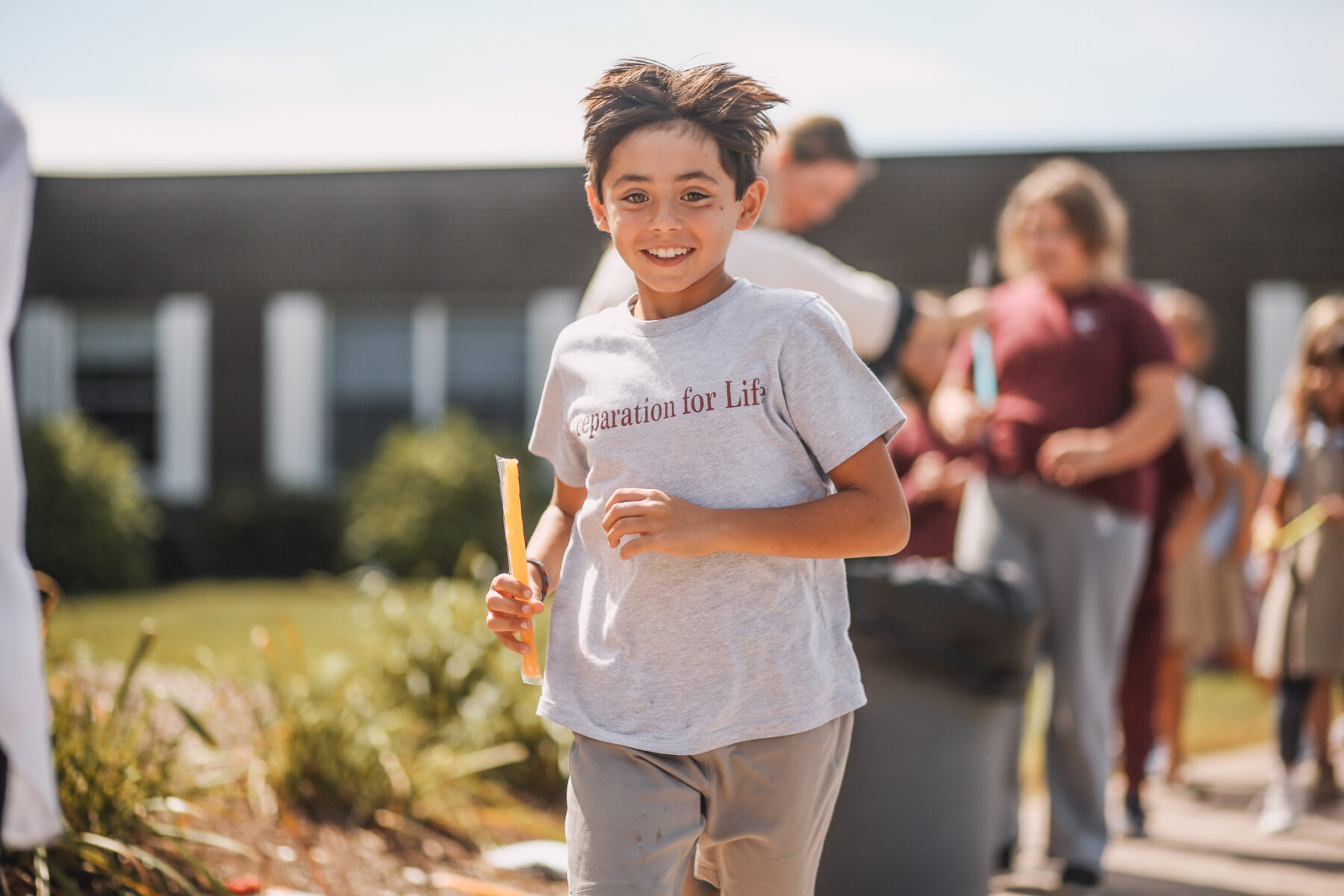The Value of Social Connectedness in Preschool
written by Preschool Director, Harlee Tuttle
Preschool as a Foundation for Relationship-Building
One of my favorite things to observe each morning is how excited children are to greet their teachers and peers as they arrive at school. Some children run to hug their peers as others shout their friend’s name as they walk down the steps into the MPR. They are received with smiles, hugs and happy voices cheering their name. Can you imagine how we would all feel if that was the reception we received in our workplace?
Social connections are a vital part of your child’s early development. Preschool is not only a place for academic learning but also a crucial environment for fostering social skills, empathy, and cooperation.
In our preschool, we recognize that social interactions play a vital role in your child’s overall growth. As your child begins to form connections with their peers, they develop essential skills that will serve as a foundation for future relationships and collaborations. It’s not just about making friends; it’s about learning to communicate, share, and understand different perspectives.
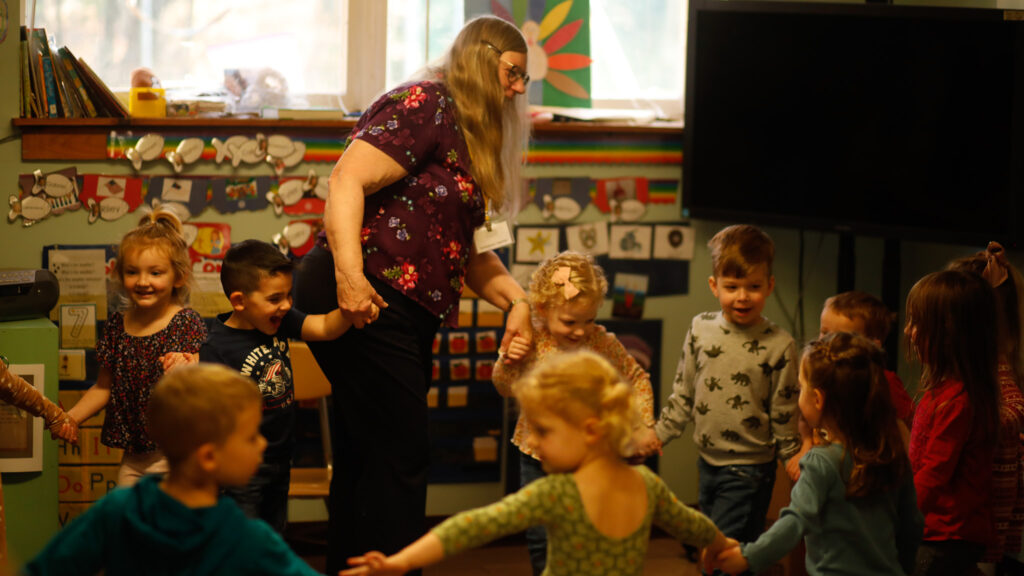
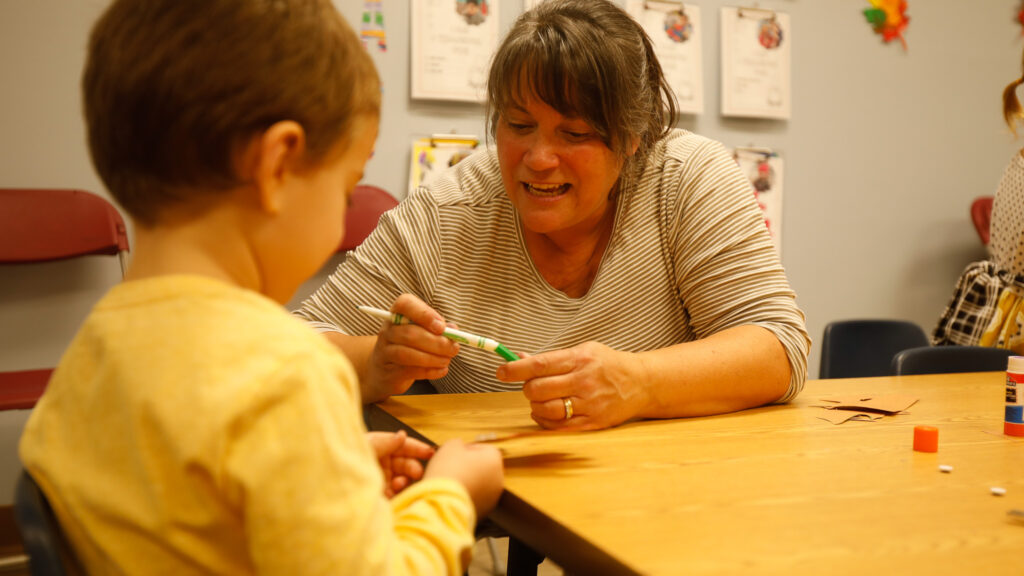
How Teachers Develop Social Connections in the Classroom
To support and enhance these social connections, our teachers are dedicated to creating a positive and inclusive atmosphere within the classroom. Through structured activities, group play, and collaborative projects, we provide opportunities for your child to build meaningful relationships with their classmates. These interactions not only contribute to their emotional well-being but also to the development of important social and emotional skills. So, what does this look like in action?
- Self-Concept & Social Identify: self-esteem- drawing attention to their actions; self-confidence- experimenting with their own potential; social identity- awareness of differences and their own gender and cultural identity.
- Attachment: respond appropriately to social and emotional cues of adults
- Social Competence: relationships & social skills with peers- playing cooperatively; labeling others’ feelings and recognizing reasons for those feelings; following classroom routines with guidance
- Emotional Competence: expressing feelings verbally, responding to an adult’s cues about regulating emotions
If you ever have any questions or concerns regarding your child’s social connections or any other aspect of their preschool experience, please feel free to reach out to us. We value the partnership between home and school and believe that by working together, we can create a nurturing environment that promotes your child’s overall well-being.
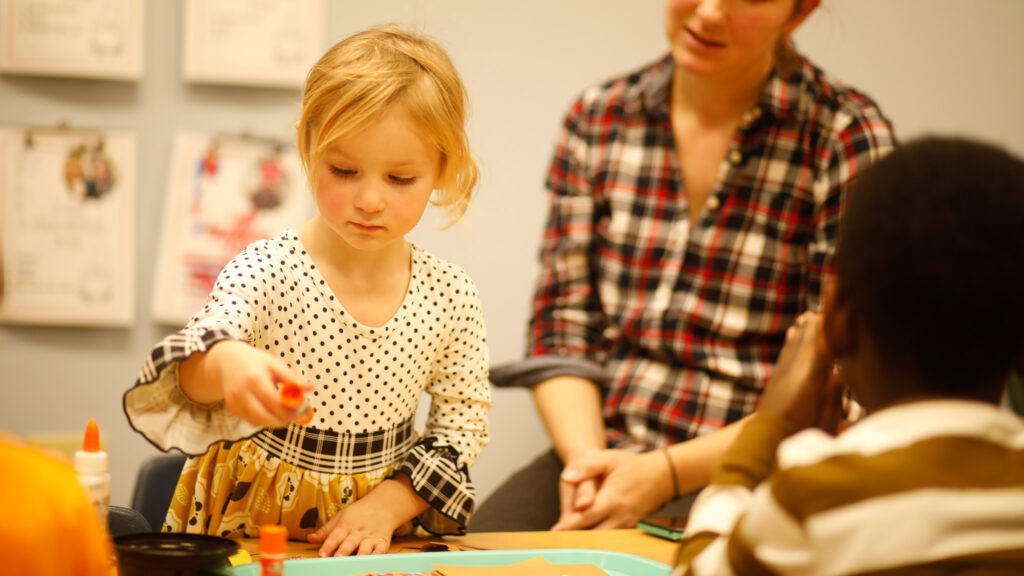
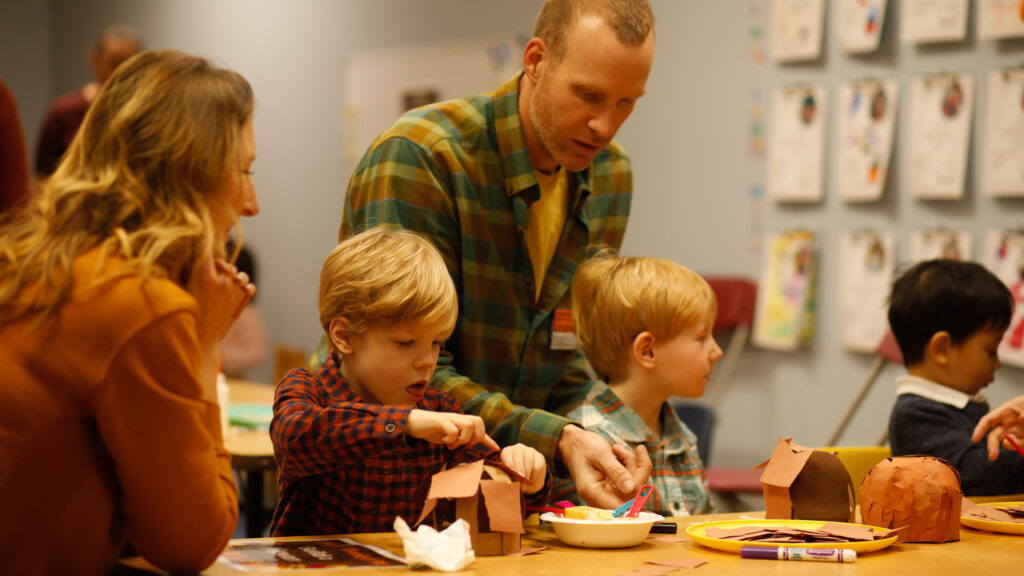
What Can Parents Do at Home?
1. Talk with your child each day about their time at school.
We know sometimes when you ask your child how their day was, or what they did, the answer is, “I don’t know”. So, try to ask open ended questions to pull out some of what they did. Be specific in asking- who did you play with? Ask them what their best part of the day was, and then what they would like to be different (think, high-point/low-point). By doing so, you can gain insights into their social interactions, helping to reinforce positive behaviors and address any concerns that may arise.
2. Connect with other parents.
We recognize that there is little time during our school day for parents to connect with each other. We encourage you to use the Veracross portal and reach out to each other. Set up play dates, meet at a park or at a place to hike. These times together foster social skills and help to build social bonds outside of school.
Thank you for entrusting us with the privilege of being a part of your child’s early learning journey. We look forward to a year filled with growth, discovery, and meaningful connections!

